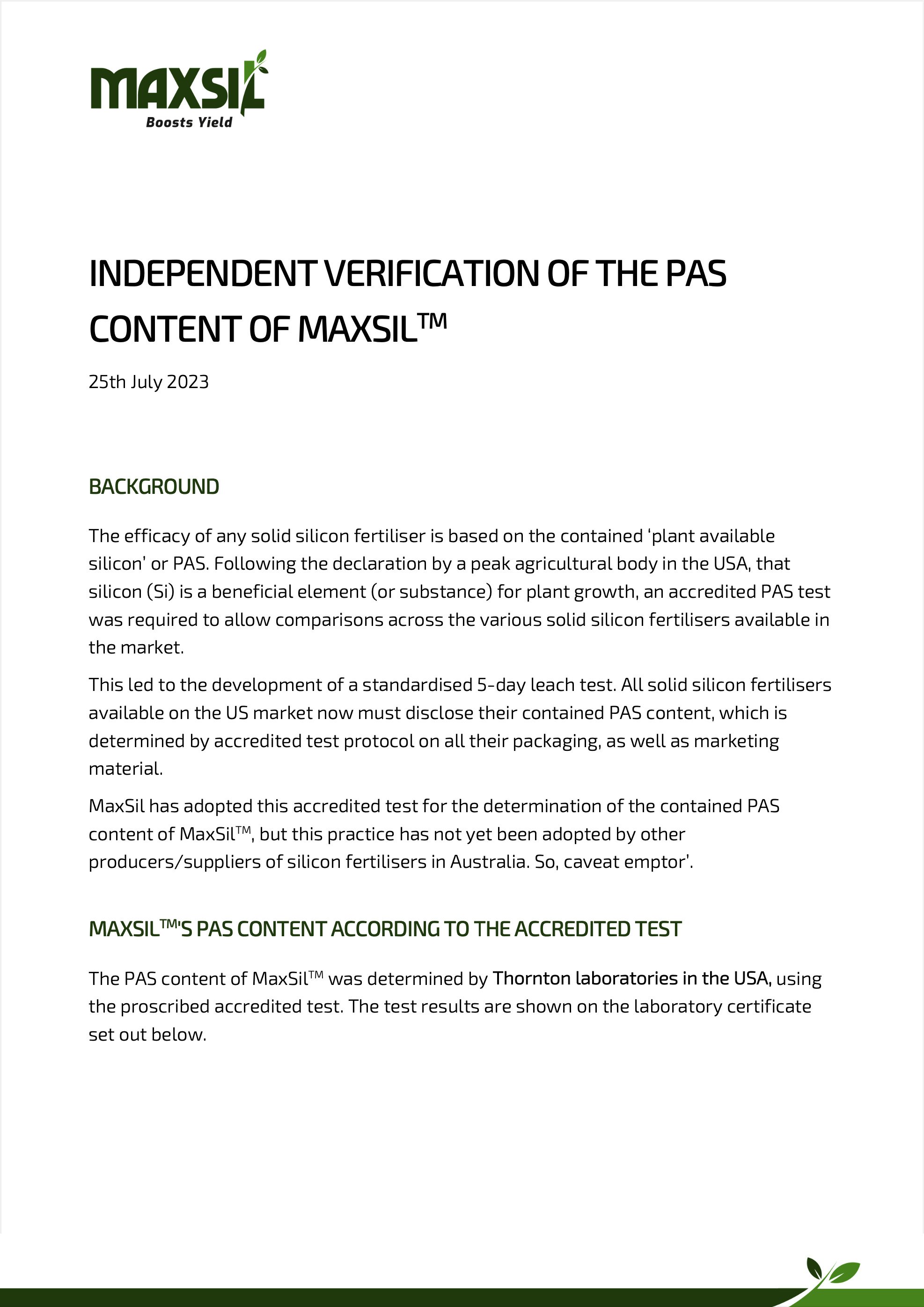FAQ
-
You can purchase MaxSil™ from our distribution partners Nutrien AG Solutions, and E.E. Muir & Sons. Click the “Where to Buy” button to get a list of Stockists.
-
PAS is determined through an internationally accredited 5-day leaching test. MaxSil™’s certificate of analysis can be downloaded from the “Field Trial Section” on this website.
Beware! Not all silicon fertiliser companies use the accredited test.
-
1000kg (1 tonne) of MaxSil™ contains 24 times the same amount of PAS as is contained in 1000kg (1 tonne) of the competing solid form products, which either use calcium silicates or diatomite as feedstock for producing their silicon fertiliser.
-
100kg per Ha is the standard, unless otherwise advised for specific purposes, e.g. soil improvement, e.g. salinity, aluminium toxicity.
-
Once per year for broadacre farming. The same applies to orchards (fruit, nut, avocado, olive, etc.). For horticulture once for every crop cycle.
-
It reduces the need for NPK fertilisers and reduces Abiotic and Biotic Stresses (reducing pesticide- and fungicide needs) and generally improves soils.
It also can restore saline, alkaline, and aluminium toxic soils. Silicon promotes the fixing of carbon in plant cells by strengthening the cell walls with amorphous silica.
One tonne of MaxSil™ contains the same amount of PAS as 10 tonnes of competing products, i.e. one-tenth of CO2 emissions from road transport and field spreading
Moreover, MaxSil™ is produced from recycled glass, whilst diatomite is mined by open-cut methods and calcium silicates are an unregulated waste product from steelworks.
MaxSil™ is part of the circular economy. It is a perfect example of “recycle and repurpose”, of material that may have been dumped into a landfill in the past.
-
Silicosis is caused by fine particles (dust) derived from crystalline silica (e.g., sand). Crystalline Silica, which in dust form is composed of needle-like microparticles (similar to asbestos).
MaxSil™ is manufactured from recycled glass which is composed of amorphous (non-crystalline) silica. It is a totally different material from crystalline Silica and is classified as non-hazardous by Work Safe Australia.
-
MaxSil™ is certified for organic farming by NASAA (Certification Number: 4339M), in accordance with NASAA Organic and Biodynamic Standard (NOS). View Certificate of Registration.
-
A wheat trial in NSW confirms this fact (see Trial Report download - nutrition in wheat).







